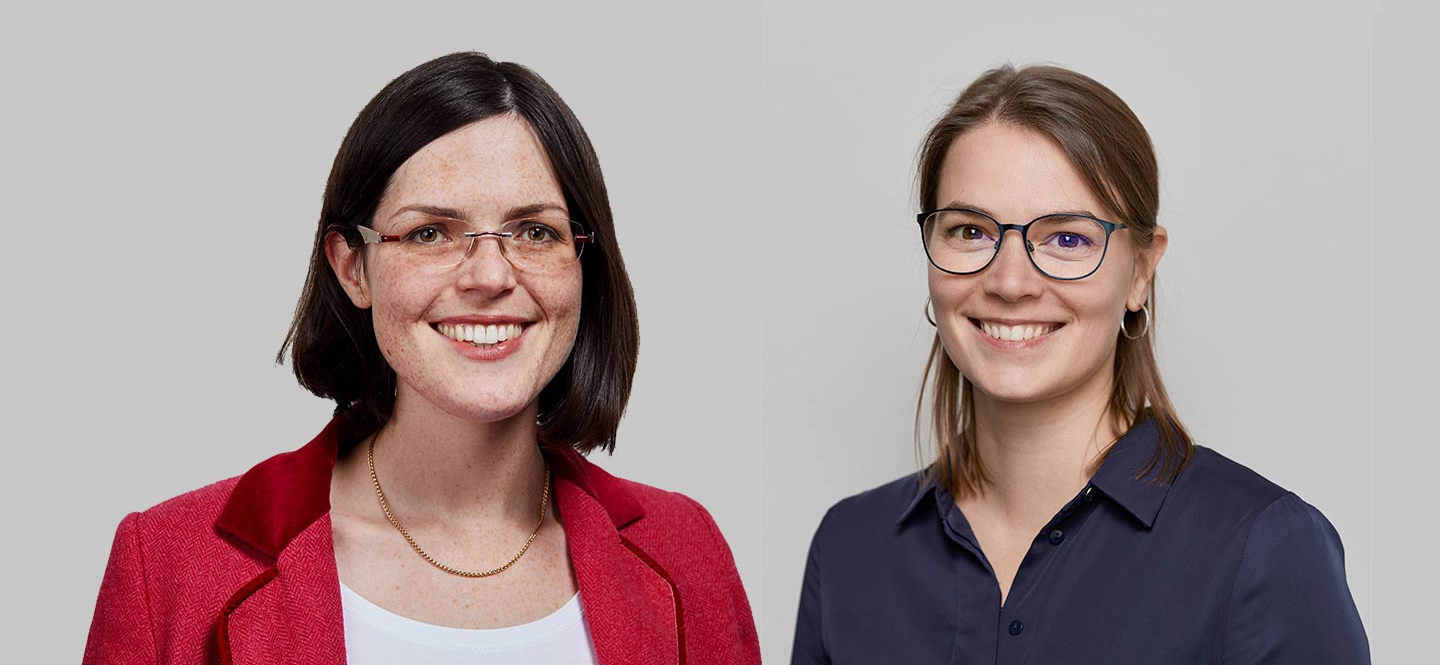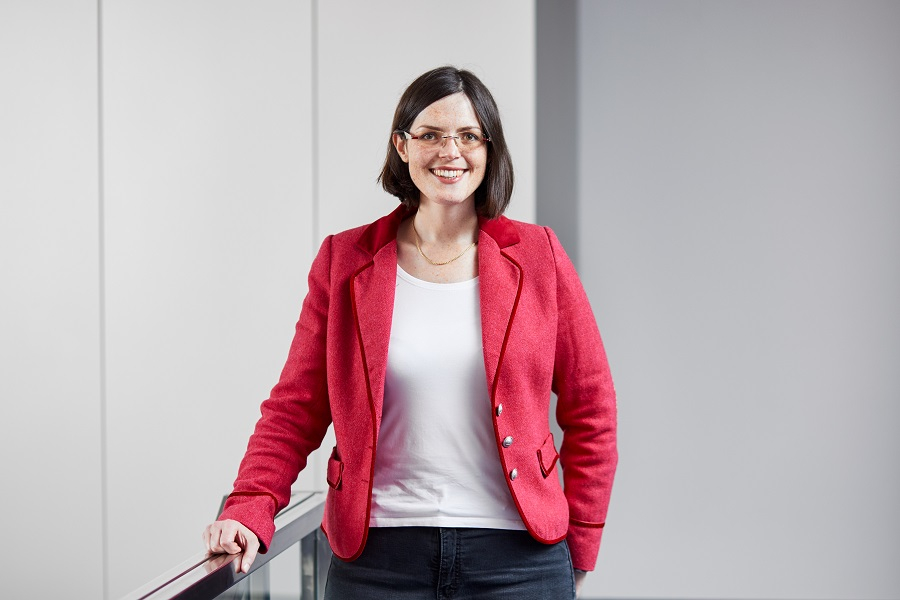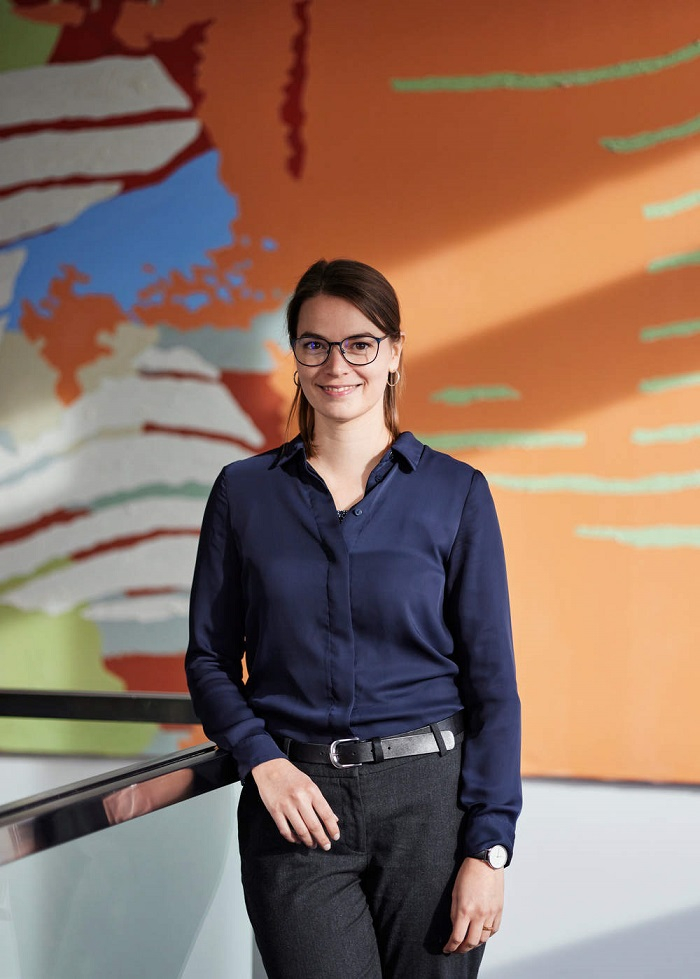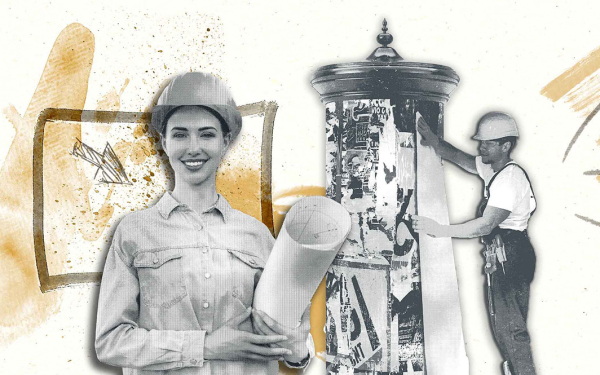Become an "Agent of Change!": The Program Directors explain how it works

Philip Bartz/VolkswagenStiftung
Dr. Annabella Hüfler-Fick (left) and Dr. Mona Weyrauch.
The media is increasingly full of gloomy news – wars, climate warming, crisis of democracy. What can be done to counteract the negative effects? The funding initiative "Change! Fellowships and Research Groups" aims to bring about social change through the findings of transdisciplinary research. Annabella Hüfler-Fick and Mona Weyrauch provide information about what researchers need to consider when applying.
Wars, crises, and conflicts: the world is under constant stress. Can science – and in particular the new funding initiative "Change! Fellowships and Research Groups" – point the way to solutions?
Dr. Mona Weyrauch: Absolutely! When it comes to identifying crises and developing coping strategies, science plays a major role. However, science is not only able to identify the causes of crises: it can also determine the factors that could pave the way out of a crisis and develop methods for overcoming it.
With this in mind, our new funding initiative "Change! Fellowships and Research Groups" in the profile area "Social Transformations" aims to bring science and society together – because a purely scientific view is often not enough. So, in the complex process of bringing about social change, we need to include perspectives from civil society. "Change!" enables projects that research crisis management and at the same time provide impetus for change.
What is the target group of the initiative?
Dr. Annabella Hüfler-Fick: "Change!" is aimed at people across all academic fields whose research projects aim at shaping social transformation by working together with partners outside the scientific community. The program specifically addresses persons whose doctorate was awarded at least two years before the closing date for applications.
"Change!" makes grants available to individual researchers – so we have a strong focus on the person behind the application and their potential to be an "agent of change", a person who builds bridges between their expertise and real-world situations. The overall objective is to transfer scientific findings with a view to solving social problems – thus contributing towards a more sustainable future and a better life.
And the persons we support may also be in the early stages of their career. For this reason, the initiative comprises two funding lines: With one, we support "fellows" – people in the early career phase who currently have a fixed-term contract and will one day have to look for new funding. The other funding line is aimed at "research groups". This funding line addresses established researchers who have a permanent position and wish to acquire funding for a research team on their chosen topic.
As a special feature of the "Change!" funding program, you emphasize the transdisciplinary approach of involving people from outside the academic research community in projects. What do you hope to achieve by this?
Annabella Hüfler-Fick: We support projects that build bridges between science and civil society. The aim of transdisciplinary research is not to get stuck at the point where research findings, data or publications are simply made available and where there is no transfer to social life. Instead, we need to cross this threshold. We are also looking forward to fresh ideas on the topic of disseminating the research results and ensuring that the proposed solutions really are appropriated where they are needed – be it via social media, original event formats or other creative approaches. Furthermore, we would like to contribute towards anchoring transdisciplinary research more firmly in the scientific system.
Mona Weyrauch: However, the program is not to be used to promote citizen science projects. The project partners not belonging to the academic research community should also not be seen simply as research assistants or as mere providers of data. They should be involved in the actual formulation of the research question, actively developing work packages and transferring the results to society at large. In all of this, it is vital that they are treated as equal partners.

As a program manager in the profile area "Social Transformations", Annabella Hüfler-Fick accompanies research projects in the humanities, culture, and social sciences.
Here, I want to stress the distinction between interdisciplinarity, which means cooperation between different scientific fields, and transdisciplinarity. If the project ideas submitted are interdisciplinary, that's great – but the transdisciplinary approach must also be present.
What else should the applicants consider when submitting their research proposals?
Mona Weyrauch: The most important thing is that the application shows how the project will provide a tangible boost to social change. The decisive factor here is the transdisciplinary approach of the ideas submitted. Overall, we are seeing a great deal of interest in the "Change!" funding program and expect a correspondingly high number of applicants. If you want to prevail against such strong competition, your application must stand out!
We particularly like to see ideas that are genuinely new and packaged in a high-quality proposal. To ensure that the application not only meets all requirements in terms of content, but also the formal requirements, I recommend that you carefully read the information sheet, which can be found on our website (PDF, 220 KB)
There you will find information on the deadlines for this year’s call and for others to come – for "Change! Fellowships and Research Groups" is now firmly anchored in our funding activities. From now on, it will be possible to submit applications every year. If you are not yet under pressure to find new funding, you should give yourself a year to prepare your concept by the deadline in 2025.
What other information do you have for prospective applicants?
Annabella Hüfler-Fick: This is our first call in context of the "Change!" funding initiative. It's also a challenging process for us in which we are trying out new things. I have already said that we are looking for "Agents of Change". For example, we are bringing in external expertise for the first time and conducting a kind of assessment center with applicants for the fellowships as part of the evaluation process.
in our talks with applicants – and of course when reading the applications and accompanying the projects – we are learning a lot about how the idea behind the funding initiative can be realized. A first call for applications is therefore an initial reality check. We are really excited about the project ideas submitted, the personalities behind them, and the expected results. It is going to be a stimulating as well as a challenging journey for everyone involved!

Dr. Mona Weyrauch is a program manager in the "Social Transformations" profile area. She accompanies research projects in the natural, life and technical sciences.

